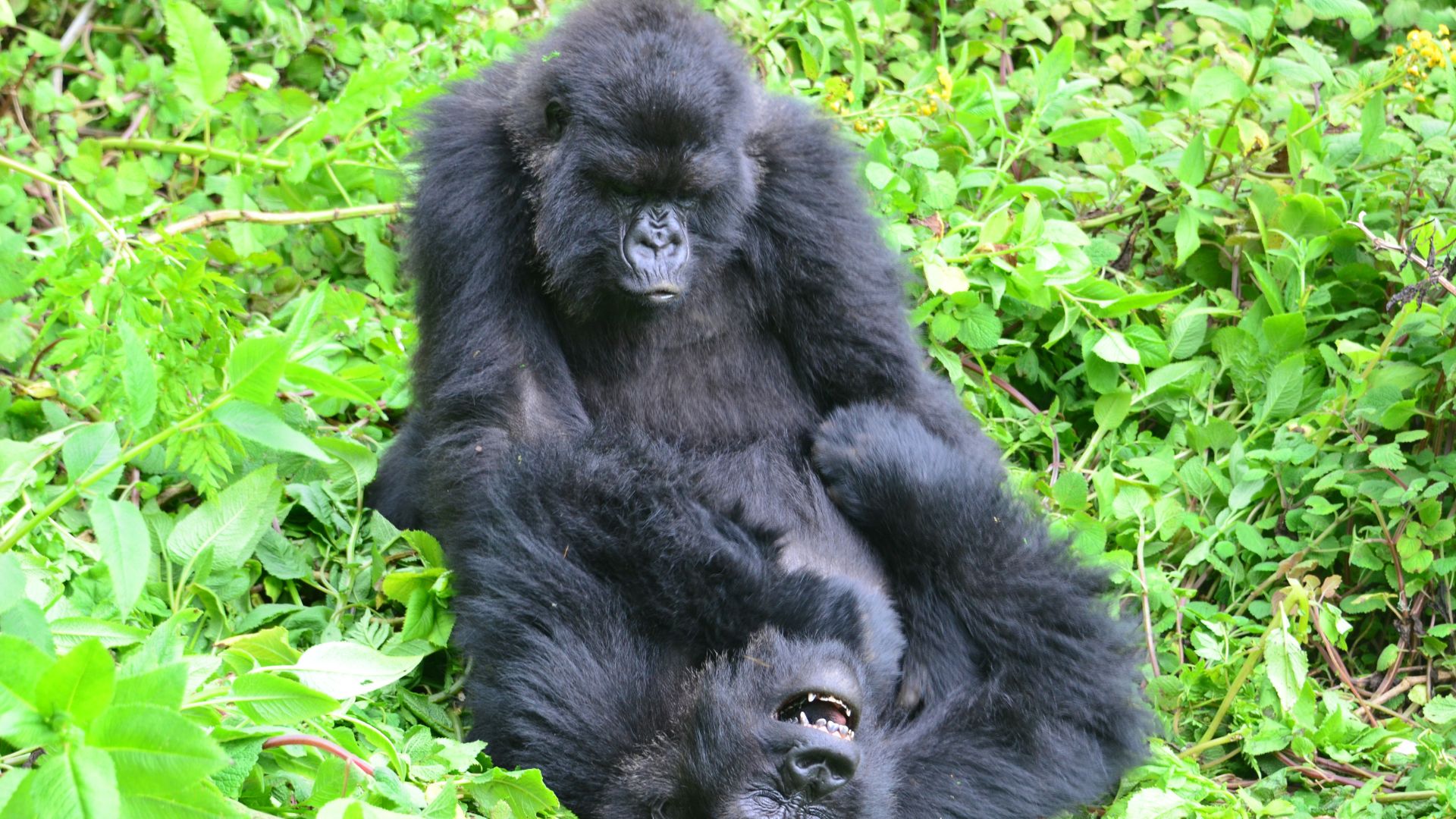Friendship has its benefits—but also its costs. A new study of wild mountain gorillas reveals...

Friendship has its benefits—but also its costs. A new study of wild mountain gorillas reveals that the health and reproductive consequences of being social are surprisingly complex, and they may help explain why some individuals, including humans, are less sociable than others.
Researchers from the Dian Fossey Gorilla Fund, the University of Exeter, and the University of Zurich analyzed more than 20 years of data from 164 gorillas in Rwanda’s Volcanoes National Park. They found that the impact of social life varied depending on a gorilla’s sex and group size.
“Having a lot of strong social relationships is often really good – but sometimes it isn’t,” said Dr Robin Morrison, lead author on the paper and senior researcher at the University of Zurich.
“For example, our study found that strong and stable social bonds are generally linked to less illness in female gorillas – but more illness in males. We can’t be certain why this happens, but it appears it’s not a simple matter of social contact leading to more disease risk.”
Why some gorilla (and humans) are less social
The study sheds light on the evolutionary forces that shape social behavior. The team focused on each gorilla’s strength of key social bonds, group integration, and broader factors such as group size and conflict.
“With these forces pushing in different directions, the ‘optimal’ social type will depend on an individual’s sex, age, offspring and wider social group,” said Dr Sam Ellis, from the University of Exeter.
The findings suggest that traits often viewed as maladaptive—like being less social—may sometimes offer benefits.
“In humans and other social mammals, the social environment is one of the strongest predictors of health and lifespan. But our study shows this isn’t a straightforward case of more and stronger social ties always being better. In some situations social traits that we’ve previously thought of as maladaptive can have important benefits.”
Four gorillas, four social strategies
The researchers also detail the social lives of four gorillas as case studies, seeking to highlight the differences among them.
Gutangara, an adult female gorilla, maintains good relationships with many group members but spends most of her time with her offspring, making her the most successful gorilla mother observed by the researchers. Maggie, once the highest-ranking female in the Bwenge group, was both aggressive and nurturing. When the dominant male in her group died unexpectedly, Maggie stepped up to lead—a role usually reserved for males.
Titus, a silverback male, lost his father and much of his group to poachers, and his mother died when he was only four. Despite this, he rose to dominance at just 15 and held his position for two decades and is known for his calm and gentle nature.
Cantsbee, another silverback, led his group for 22 years, the longest dominance tenure ever recorded. Fathering at least 28 offspring, he was known for being authoritative yet peaceful, rarely engaging in fights but quick to protect and mediate.
These life histories illustrate how different social strategies—whether centered on connection, leadership, aggression, or peacekeeping—can all contribute to success or failure, depending on the social context.
“This paper highlights the incredible value of long-term studies to furthering our understanding of the evolution of sociality and how the benefits or costs of sociality can vary considerably across different environments,” said Dr Tara Stoinski, one of the study co-authors.
The study has been published in Proceedings of the National Academy of Sciences.